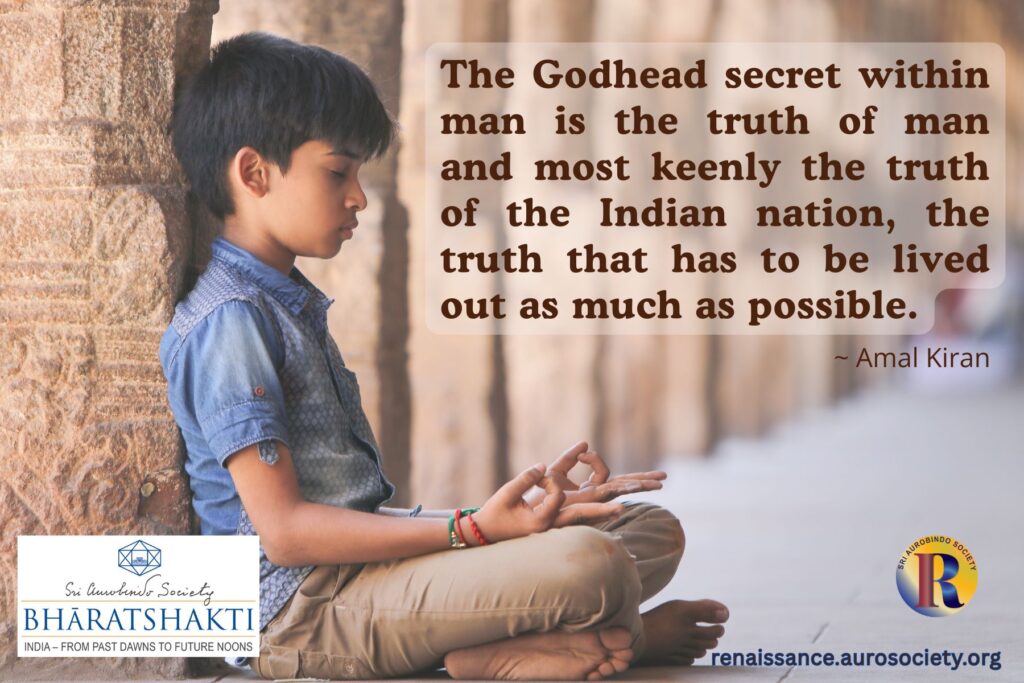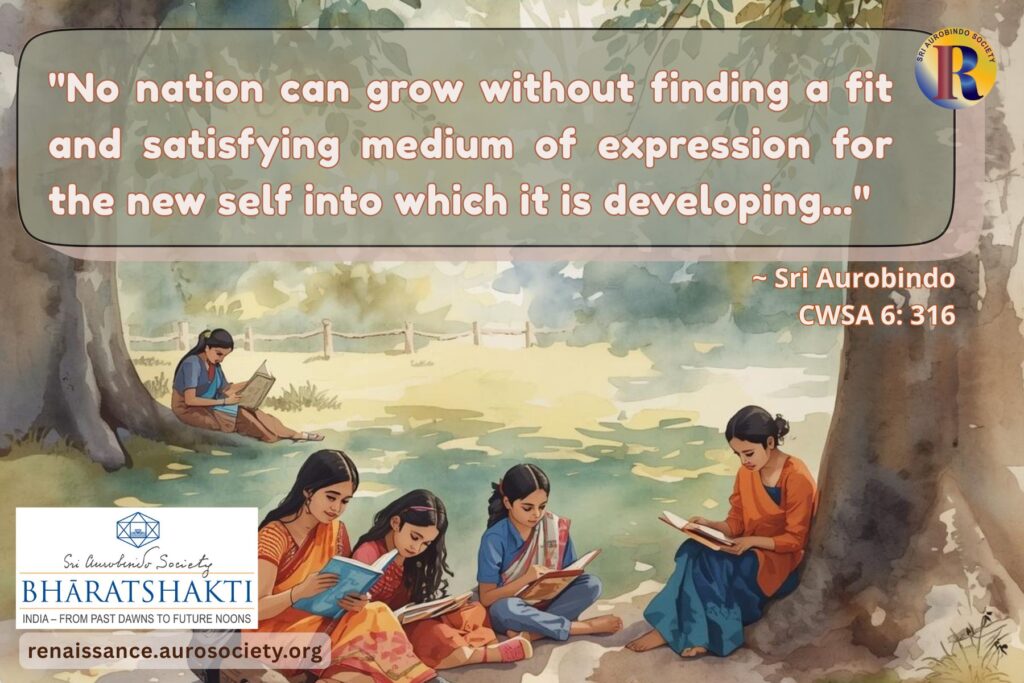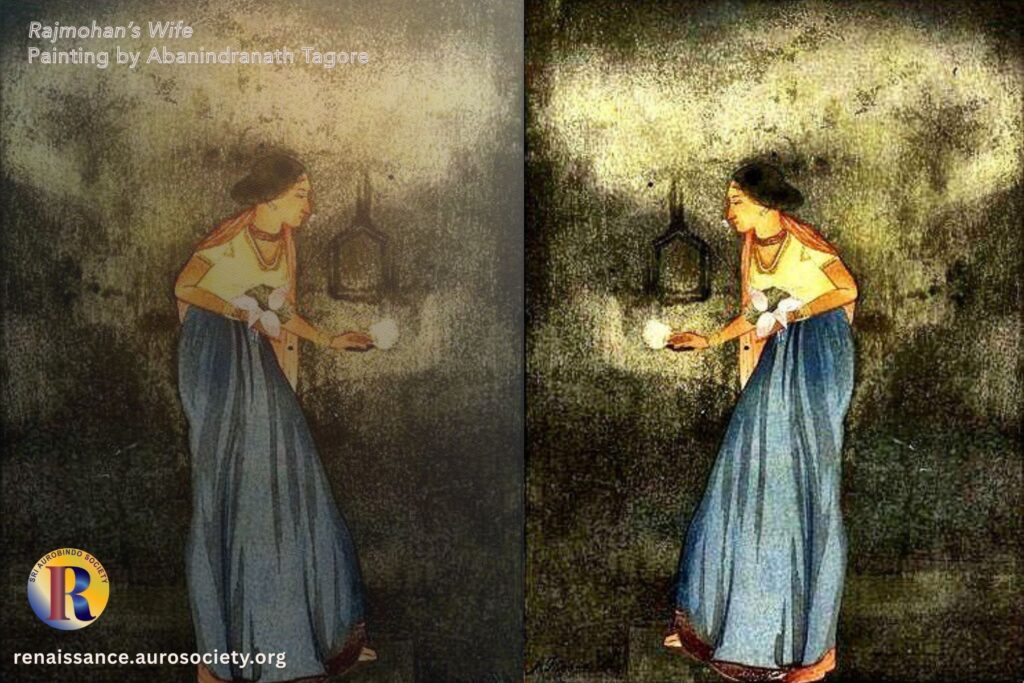Volume III, Issue 4
Author: Sri Aurobindo
Editor’s note: We feature here some comments of the Mother on three aphorisms of Sri Aurobindo. These words reveal for us that because of our ignorance and egoism we find fault with others, call them sinners or other names. But when we become aware of the higher truth, we realise that such self-righteous behaviour is a real obstacle to cultivating and practicing goodness.

Imperfections in others are mirror reflections of mine
Sri Aurobindo’s Aphorism:
Either do not give the name of knowledge to your beliefs only and of error, ignorance or charlatanism to the beliefs of others; or do not rail at the dogmas of the sects and their intolerance.
– Sri Aurobindo (Aphorism 8)
The Mother’s Comments:
Obviously, the first part of the aphorism can be taken as advice, but this is not what Sri Aurobindo meant when he wrote it; he wanted to make us conscious of the error we make ourselves but ridicule in others. This is a habit with us, not only in this particular case, but in all cases. It is rather remarkable that when we have a weakness—for example a ridiculous habit, a defect or an imperfection—since it is more or less part of our nature, we consider it to be very natural, it does not shock us.
But as soon as we see this same weakness, this same imperfection, this same ridiculous habit in someone else, it seems quite shocking to us and we say, “What! He’s like that?”—without noticing that we ourselves are “like that”. And so to the weakness and imperfection we add the absurdity of not even noticing them. There is a lesson to be drawn from this.
When something in a person seems to you completely unacceptable or ridiculous —“What! He is like that, he behaves like that, he says things like that, he does things like that”—you should say to yourself, “Well, well, but perhaps I do the same thing without being aware of it. I would do better to look into myself first before criticizing him, so as to make sure that I am not doing the very same thing in a slightly different way.”
If you have the good sense and intelligence to do this each time you are shocked by another person’s behaviour, you will realise that in life your relations with others are like a mirror which is presented to you so that you can see more easily and clearly the weaknesses you carry within you.
In a general and almost absolute way anything that shocks you in other people is the very thing you carry in yourself in a more or less veiled, more or less hidden form, though perhaps in a slightly different guise which allows you to delude yourself.
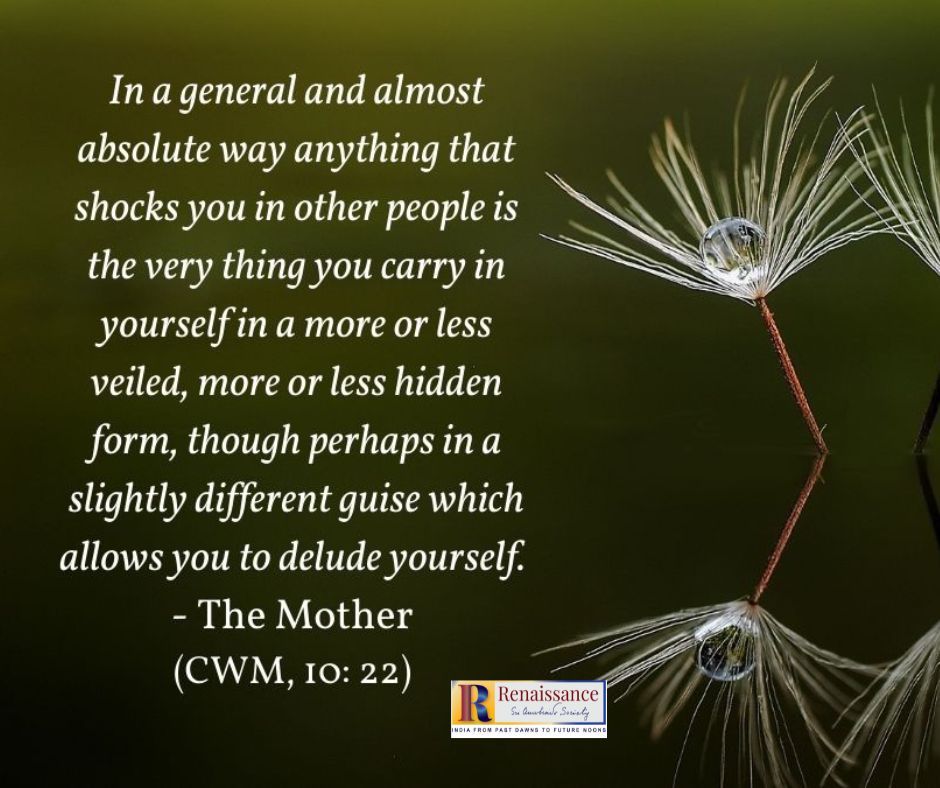
And what in yourself seems inoffensive enough, becomes monstrous as soon as you see it in others. Try to experience this; it will greatly help you to change yourselves. At the same time it will bring a sunny tolerance to your relationships with others, the goodwill which comes from understanding, and it will very often put an end to these completely useless quarrels. One can live without quarrelling. It seems strange to say this because as things are, it would seem, on the contrary, that life is made for quarrelling in the sense that the main occupation of people who are together is to quarrel, overtly or covertly.
You do not always come to words, you do not always come to blows—fortunately—but you are in a state of perpetual irritation within because you do not find around you the perfection that you would yourself wish to realise, and which you find rather difficult to realise—but you find it entirely natural that others should realise it.
“How can they be like that?…” You forget how difficult you find it in yourself not to be “like that”! Try, you will see.
Look upon everything with a benevolent smile. Take all the things which irritate you as a lesson for yourself and your life will be more peaceful and more effective as well, for a great percentage of your energy certainly goes to waste in the irritation you feel when you do not find in others the perfection that you would like to realise in yourself.
You stop short at the perfection that others should realise and you are seldom conscious of the goal you should be pursuing yourself. If you are conscious of it, well then, begin with the work which is given to you, that is to say, realise what you have to do and do not concern yourself with what others do, because, after all, it is not your business.
And the best way to the true attitude is simply to say, “All those around me, all the circumstances of my life, all the people near me, are a mirror held up to me by the Divine Consciousness to show me the progress I must make. Everything that shocks me in others means a work I have to do in myself.” And perhaps if one carried true perfection in oneself, one would discover it more often in others.

Non-acceptance of others reveal the need to transform myself
Sri Aurobindo’s Aphorism and a Disciple’s Question:
To hate the sinner is the worst sin, for it is hating God; yet he who commits it glories in his superior virtue.
– Sri Aurobindo (Aphorism 50)
Question: When we enter into a certain state of consciousness, we see clearly that we are capable of anything and that in fact there is not a single “sin” that is not potentially our sin. Is this impression correct? And yet we revolt against and feel an aversion for certain things: there is always something somewhere which we cannot accept. Why? What is the true attitude, the effective attitude in face of evil?
The Mother’s Comments:
There is not a single sin that is not our sin. . . You have this experience when for some reason or other—depending on the case —you come into contact with the universal state of consciousness— not in its limitless essence, but on any level of Matter. There is an atomic consciousness; there is a purely material consciousness; and there is, even more, a general psychological consciousness.
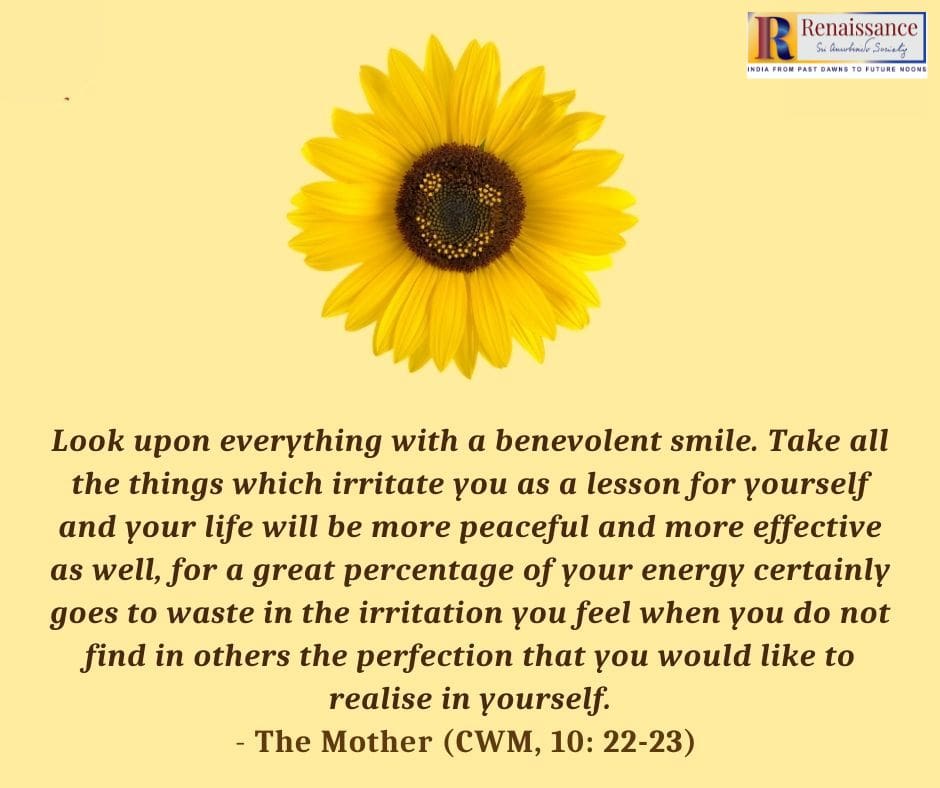
Read: Sri Aurobindo on Morality and Yoga
When by going within, by a kind of withdrawal from the ego, you come into contact with this zone of consciousness, let us say, a terrestrial or collective human psychological zone—there is a difference, “collective human” is restrictive, whereas “terrestrial” includes many animal movements, even plant movements; but as in the present case the moral notion of guilt, sin, evil belongs exclusively to the human consciousness, we will say simply the collective human psychological consciousness—when you come into contact with that through this identification, naturally you feel or see or know that you are capable of any human movement anywhere.
It is to some extent a truth-consciousness—this egoistic sense of what belongs and does not belong to you, of what you can do and cannot do, disappears at that time; you become aware that the fundamental structure of the human consciousness is such that any human being is capable of doing anything at all. And since you are in a truth-consciousness, at the same time you have the feeling that judgments or aversions, or rejection, are absurd. Everything is potentially there.
And if certain currents of force—which you usually cannot trace; you see them come and go, but as a rule their origin and direction are unknown—if any one of these currents enters into you, it can make you do anything. If you could always remain in this state of consciousness, after some time—provided you maintained within you the flame of Agni, the flame of purification and progress—you would be able not only to prevent these movements from taking an active form in you and expressing themselves materially, but also to act on the very nature of the movement and transform it.
But, of course, unless you have attained a very high degree of realisation, it will be practically impossible to maintain this state of consciousness for long. Almost immediately you fall back into the egoistic consciousness of the separate self. And then all the difficulties come back: the disgust, the revolt against certain things, the horror they arouse in you, etc.
It is probable—it is even certain—that until you are yourself completely transformed, these movements of disgust and revolt are needed so that you can do in yourself what has to be done to shut the door. For after all, the problem is not to allow them to manifest themselves.
In another aphorism Sri Aurobindo says—I no longer remember his exact words—that sin is merely something which is not in its right place. In this perpetual Becoming nothing ever repeats itself, and there are things that disappear, so to speak, into the past; and when their disappearance becomes necessary these things become, for our very limited consciousness, bad and repulsive.
And we revolt against them because their time is over. But if we had the overall view, if we could contain within ourselves the past, the present and the future all at once—as it is somewhere above—we would see the relativity of these things and that it is above all the progressive Force of evolution that gives us the will to reject; and that wherever they are in their right place, they are quite acceptable.
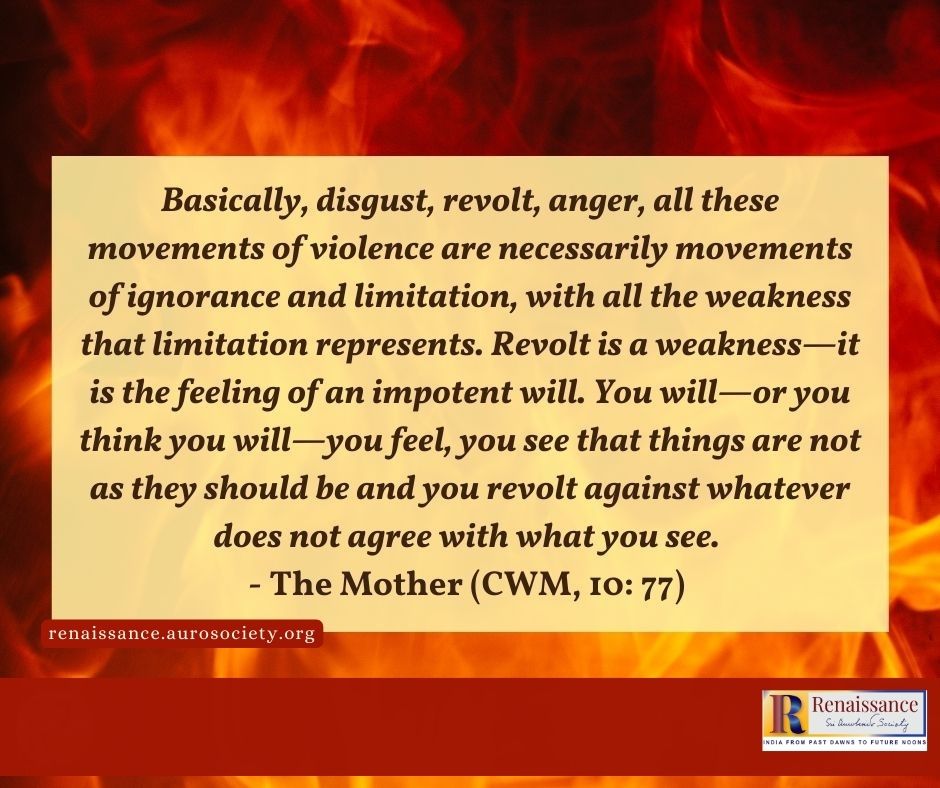
Only, it is practically impossible to have this experience unless you have the total vision, that is to say, the vision that belongs to the Supreme alone!
Therefore you must first of all identify yourself with the Supreme; then, afterwards, with this identification, you can return to a sufficiently exteriorised consciousness and see things as they are. But that is the principle, and to the extent that you are capable of realising it, you reach a state of consciousness where you can look at everything with a smile of total certitude that everything is as it should be.
Naturally, people who do not think deeply enough will say, “Ah, but if we saw that everything is as it should be, nothing would move!” No, you cannot prevent things from moving! Even for a fraction of a second they do not stop moving. It is a continuous, total transformation, a movement that never ceases. And because it is difficult for us to feel like this, it is possible for us to imagine that if we were to enter into certain states of consciousness, things would not change.
But even if we were to enter into an apparently total inertia, things would continue to change and so would we! Basically, disgust, revolt, anger, all these movements of violence are necessarily movements of ignorance and limitation, with all the weakness that limitation represents. Revolt is a weakness—it is the feeling of an impotent will. You will—or you think you will—you feel, you see that things are not as they should be and you revolt against whatever does not agree with what you see.
But if you were all-powerful, if your will and your vision were all-powerful, there would be no occasion for you to revolt, you would always see that all things are as they should be. If we go to the highest level and unite with the consciousness of the supreme Will, we see, at every second, at every moment of the universe, that all is exactly as it should be, exactly as the
Supreme wills it. That is omnipotence. And all movements of violence become not only unnecessary but utterly ridiculous. Therefore there is only one solution: to unite ourselves by aspiration, concentration, interiorisation and identification with the supreme Will. And that is both omnipotence and perfect freedom at the same time. And that is the only omnipotence and the only freedom; everything else is an approximation. You may be on the way, but it is not the entire thing.
So if you experience this, you realise that with this supreme freedom and supreme power there is also a total peace and a serenity that never fails. Therefore, if you feel something which is not that, a revolt, a disgust, something which you cannot accept, it means that in you there is a part which has not been touched by the transformation, something which has kept the old consciousness, something which is still on the path—that is all.
– The Mother, CWM Vol. 10, pp.74-79

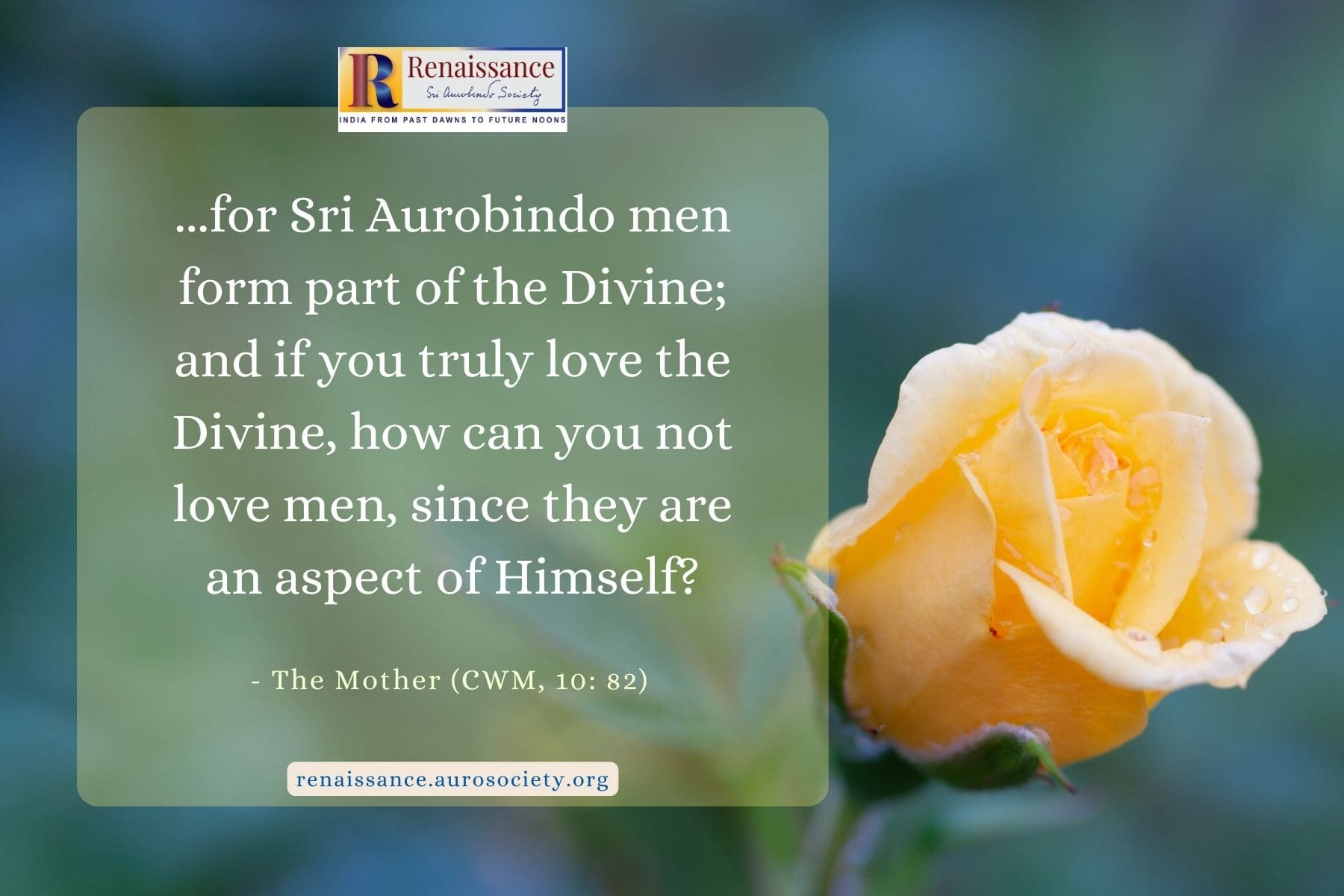
Love the Divine in all men
Sri Aurobindo’s Aphorism and a Disciple’s Question:
This is a miracle that men can love God, yet fail to love humanity. With whom are they in love then?
– Sri Aurobindo (Aphorism 52)
Question: Is it possible to reach the Divine through philanthropy?
The Mother’s Comments:
It depends on what you mean by philanthropy. Normally, we call philanthropists those who do charitable works. Here Sri Aurobindo does not use the word philanthropy, for, as it is usually understood, philanthropy is a social and conventional attitude, a kind of magnified egoism which is not love but a condescending pity which assumes a patronising air.
In this aphorism Sri Aurobindo refers to those who follow the ascetic path in solitary search of a solitary God, by trying to cut themselves off completely from the world and men.
But for Sri Aurobindo men form part of the Divine; and if you truly love the Divine, how can you not love men, since they are an aspect of Himself?

Also read: The Mother on True and Sublime Charity
~ Design: Raamkumar
~ Research volunteer: Shraddha Gour Mohanti

